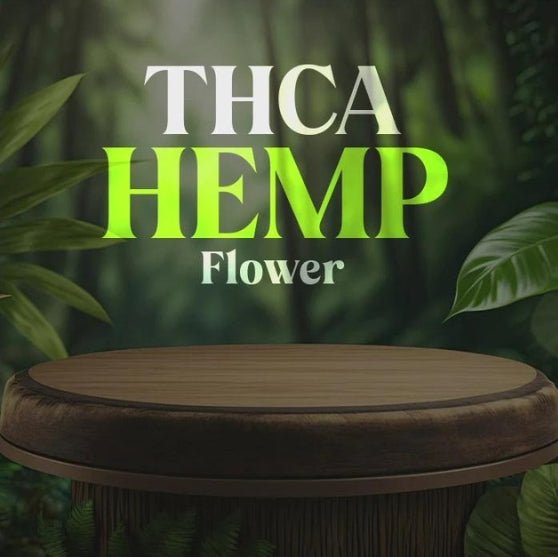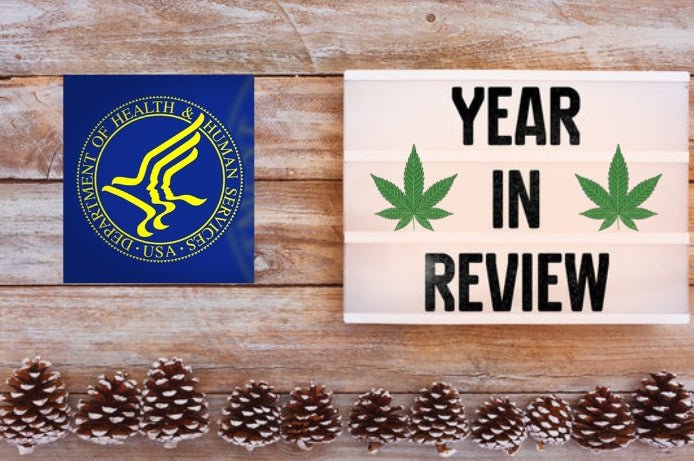In their message, the former federal prosecutors argue that reclassifying marijuana from a Schedule I to a Schedule III narcotic could be a catastrophic move.

For many advocates and stakeholders in the cannabis reform movement, 2024 is being viewed as a pivotal year for advancing the cause of legal and regulated cannabis markets nationwide. However, as more and more states consider joining the group of 24 that already have a legal adult-use marijuana industry, 29 former U.S. attorneys are sounding extremely loud and equally confusing alarm bells concerning the legalization of the mercurial flower.
As first reported by Cannabis.net last month, the group of former federal prosecutors sent a letter to the heads of the Department of Justice (DOJ) and the Drug Enforcement Administration (DEA) passionately admonishing the Biden Administration to keep cannabis classified as a Schedule I drug on the federal Controlled Substances List.
In their message to the President, they fervently argue that cannabis has transformed into a much more dangerous, potent, and addictive narcotic since the last government review of the plant in 2016. As a result, they are highly concerned with the recommendation by the Department of Health and Human Services (HHS) in late August to the DEA to move marijuana from a Schedule I narcotic to a Schedule III class drug.
According to the letter, the former U.S. attorneys assert several compelling arguments against rescheduling. However, much of the reasoning and evidence behind those arguments are somewhat flimsy to many critics and reek of Corporate Cannabis influence and the worn-out ranting of the old prohibitionist crowd.
Below are several of the reasons behind the letter as well as counterpoints to those assertions:
1. Home-grow laws have inadvertently given aid to drug cartels
The attorneys claim that provisions in various state cannabis legalization measures allowing for individuals to home-cultivate cannabis have unintentionally allowed global drug cartels to exploit loopholes in those laws.
“Almost no one has benefitted from legal weed, but there is one group coming out on top: drug cartels. Many states have enacted home-grow marijuana laws, which led to cartels growing marijuana in the United States to cut trafficking costs,” the former federal prosecutors claim in the new letter.
"Almost no one has benefitted from legal weed, but there is one group coming out on top: drug cartels. Many states have enacted home-grow marijuana laws, which led to cartels growing marijuana in the United States to cut trafficking costs.”
- Letter from 29 Former U.S. Attorneys Concerning Marijuana Rescheduling
While these are powerful and incendiary accusations, the letter provides no specific sources backing the claims. Likewise, many states that allow for home grows have strict regulations, limiting the number of plants that can be home-cultivated. In addition, several of those states also explicitly outlaw the unlicensed commercial sale of cannabis products.
2. The medicinal benefits of marijuana and addiction concerns
The second major point raised by the former federal prosecutors centers around the perceived lack of actual medical uses for cannabis as well as the safety of individuals using medicinal marijuana. They bluntly assert that cannabis should not be considered for rescheduling based on any potential medical benefits provided by the plant.
The basis for this argument comes from a June 2023 study suggesting that marijuana-based medicines increased adverse events connected to the human central nervous system. They point to additional scientific research demonstrating the increased addictive potential of cannabis for specific users.
“We urge you to consider the scientific research that demonstrates marijuana’s high addictive potential, its lack of safe medical use, and the impact rescheduling will have on prosecuting drug cartels when conducting your scheduling review,” the letter says.
"We urge you to consider the scientific research that demonstrates marijuana’s high addictive potential, its lack of safe medical use, and the impact rescheduling will have on prosecuting drug cartels when conducting your scheduling review.”
- Letter from 29 Former U.S. Attorneys Concerning Marijuana Rescheduling
However, “cherry-picking” a few studies that fit the argument, again, does not provide a conclusive or overwhelming reason to suggest that medicinal marijuana is doing more harm than good.
3. Financial implications and the overall regulation of the industry
Finally, the 29 former U.S. attorneys point to the financial and regulatory implications of rescheduling cannabis to a Schedule III narcotic. If the DEA eventually goes along with the HHS’ recommendation to reschedule, cannabis businesses would no longer be limited by IRS rule 280E, which currently prohibits companies working with Schedule I substances from claiming standard business deductions.
According to the letter, this would enable marijuana businesses to deduct expenses for a variety of activities, including marketing aimed at attracting young people and the sale of “child-friendly” cannabis products.
And while this financial perspective does introduce a concerning layer to the already complex and nuanced debate, specifically regarding the commercialization of marijuana and its potentially detrimental effects on vulnerable populations (i.e., the youth), critics of this argument contend that many state regulations are already in place to address advertising aimed at minors.
Overall, the letter comes across as a highly politicized effort on the part of these former prosecutors to prevent the natural evolution of marijuana legalization from playing out. Their arguments and surface-level reasoning highlight some perceived risks associated with legalization, such as criminal activities and financial concerns. However, the lack of evidence and specific sources to back up those intense and worrisome claims raises serious questions about the credibility of the arguments and the true motivations behind them.
According to several insiders and industry advocates, the DEA will most likely go with the HHS recommendation to reschedule cannabis. If and when that takes place, it will be incumbent upon policymakers and industry regulators to weigh all concerns, including those shared by the former prosecutors.
Ultimately, all parties involved will have to strike a healthy balance weighing public health concerns, the development of effective and safe industry practices, and the ever-evolving cannabis legalization landscape equally. That approach will be vital in helping craft equitable and sustainable cannabis policies at the state and federal levels.








































